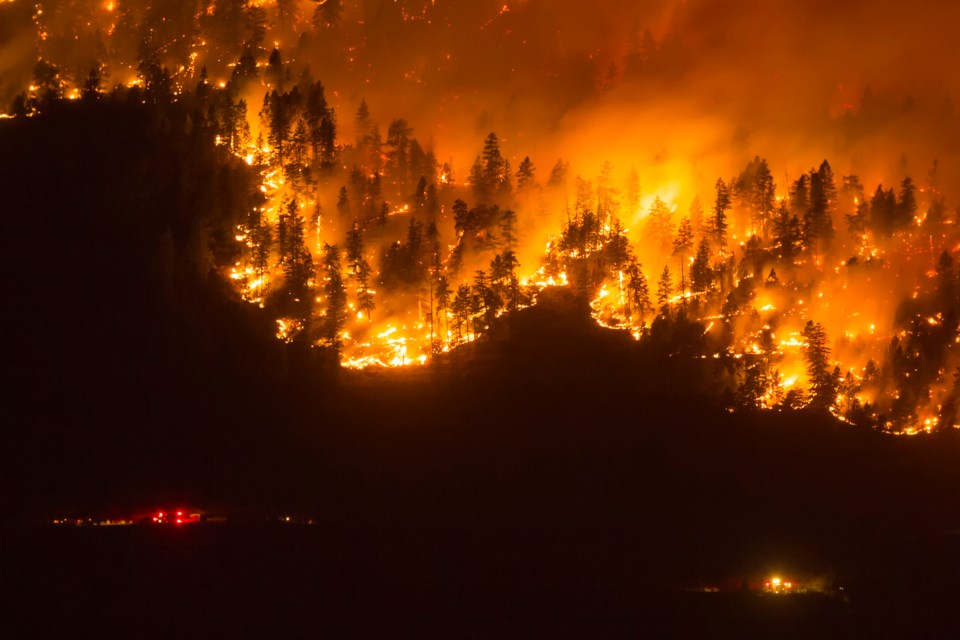At the start of Meta's blackout of Canadian news sources, my principal concern focused on the impact it would have on public safety and the ability to alert people in urgent situations.
The concerns were quickly validated, thanks to a couple of natural disasters that had a direct impact on tens of thousands of Canadians, and an indirect impact on many more.
The wildfires that struck the Northwest Territory and south-central B.C. are indeed a terrible situation. In the case of the fires up north, the majority of people in that territory have been forced to flee their homes, and the territory's capital of Yellowknife has been nearly empty for almost a week, with only those provided essential services supposed to remain.
As for south-central B.C., the fires have destroyed homes and resorts in the Kelowna area. The fires have been a recurring story in B.C. in the past three months, and a few weeks remain in what is traditionally their forest fire season.
But with both the B.C. and N.W.T. forest fires, people were limited in their ability to access updates on the situation because of Meta's decision to block Facebook and Instagram users from receiving news from Canadian feeds. Meta has ignored calls to end this dangerous policy.
Instead, it feebly said that people could check in to let their family and friends know that they are safe, something that people have been able to do for years.
But as far as checking for updates from valid news agencies about evacuations, instructions from the government, the status of the fires, weather updates and other information, people were out of luck.
Meta might think the simple check-in was enough for public safety, but it wasn't.
For the people making the 1,400-kilometre-plus drive from Yellowknife to evacuation centres in Edmonton, they needed a place where they could find updates as often as possible. Three weeks ago, Facebook was that place. Not any longer.
The governments in B.C. and the N.W.T. provided updates, but they weren't as rapid as what you used to find. Facebook would allow you to see updates from the different news agencies in one place, rather than going from website to website to see if anything was new.
If you've been neutral on this issue, or if you've been leaning towards Meta's actions, the wildfires are perfect examples of why Meta is so wrong. And when Facebook could have done the right thing and lifted the ban, at least temporarily until this crisis is resolved and people can return to their homes, they failed to compromise.
It goes to show how little users actually mean to them.
Companies such as Meta have largely enjoyed being in an unregulated space for nearly two decades. And they seem to think that they can continue to operate with impunity.
The Meta block is so ridiculous that now Saskatchewan Crime Stoppers cannot update its Facebook page because it has been deemed as news. You can see posts from Aug. 2 and before, but nothing since despite its value as a public service.
And we've seen other situations in which the ability to keep the public updated instantly was compromised. One was close to home: a missing person case from the White Bear First Nations that had a tragic ending when the missing woman was found deceased.
Just a few weeks ago, we could have posted a report and quickly informed thousands of people. Missing person reports are among the most important things that we can get out to the public, along with kidnappings, dangerous person advisories and other matters related to public safety.
While there are other platforms beyond Facebook to reach the public in an accelerated fashion, Facebook is still the one that most people turn to.
We don't know how long Facebook is going to be in this standoff with the federal government. It might be permanent. By the time this showdown is finished – if it ever ends – you're likely going to be sick and tired of us talking about the need to find alternate ways to find out about what is happening in your community, province, country and world.
But we're harping on it because we know the value of getting the news to you as quickly as possible. And we're going to continue to talk about it until this ends or until we all know that Facebook is no longer a reliable way to get news.






